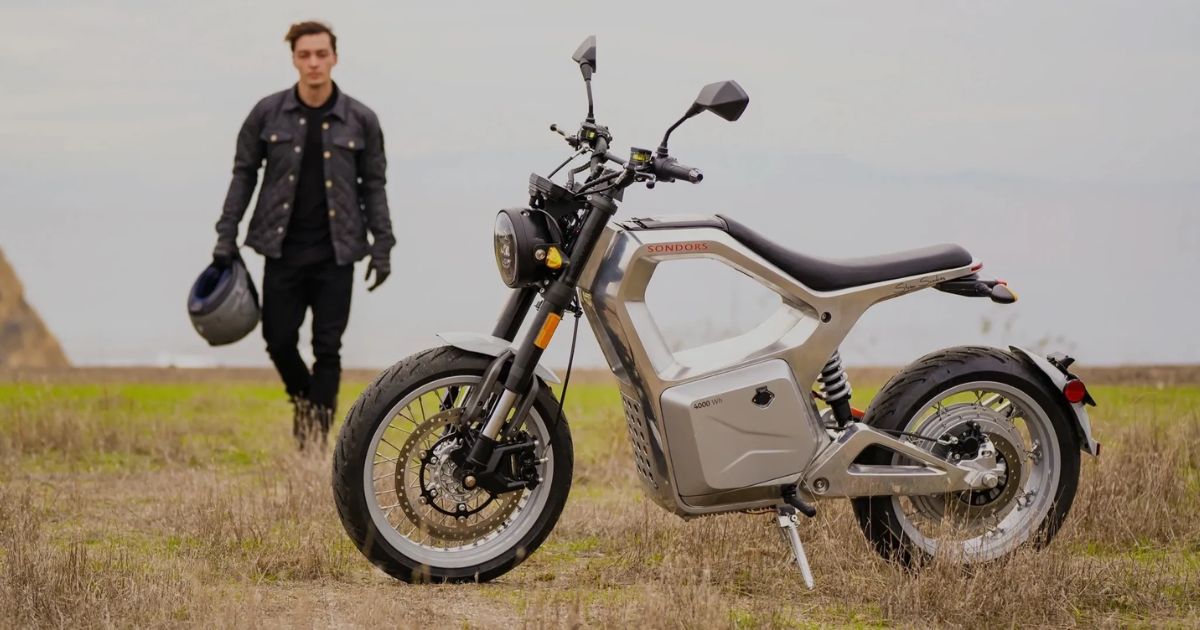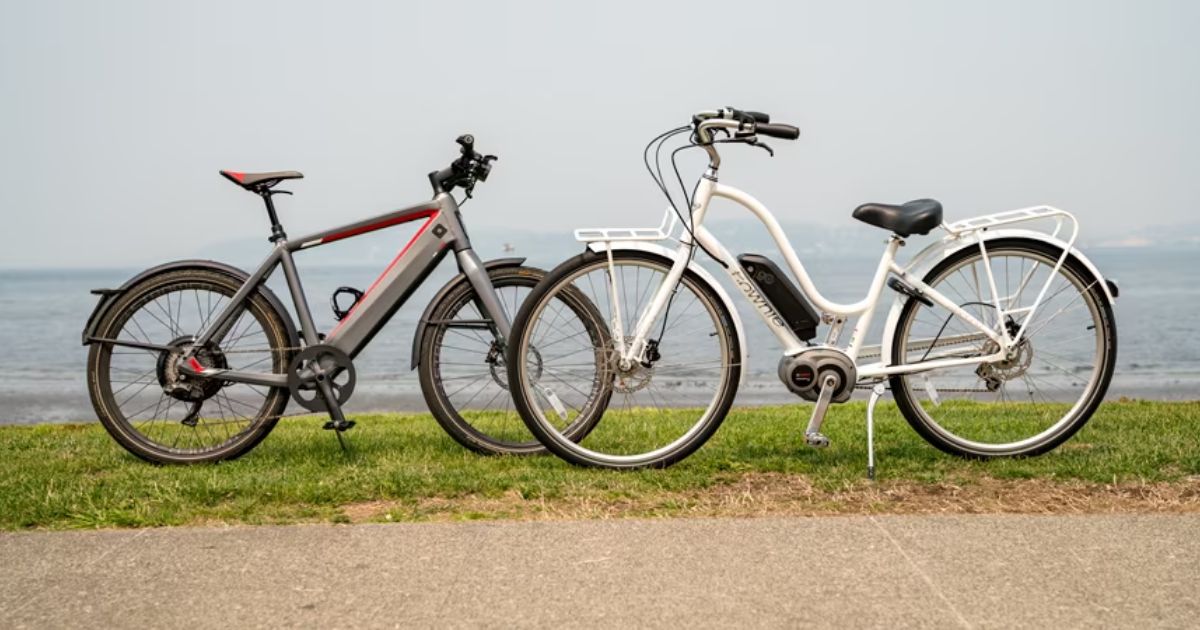An electric bike, or e-bike, is a bicycle equipped with an electric motor that assists with pedalling, providing riders with an extra boost of power. It allows for easier and faster cycling, especially uphill or over longer distances.
Ready to ride into the future? Say goodbye to traditional bike registration hassles and welcome the era of electric bikes with open arms! Registering your electric bike has never been easier or more crucial for a seamless and eco-friendly journey. Join the revolution – let’s get those wheels turning, legally and effortlessly!
Electric bike registration is a simple process aimed at ensuring safety and accountability. In many places, owners are required to register their electric bikes with local authorities, providing essential information such as the bike’s serial number and owner details.
Understanding Electric Bike Registration
Securing the appropriate license for your electric bike is paramount in navigating the regulatory landscape and fully enjoying the advantages of electric biking. In various regions, specific regulations are in place to ensure safety and compliance with traffic rules. Acquiring the license typically entails submitting essential details about your electric bike, including its make, model, and serial number, to local authorities.
This straightforward process is essential for a seamless and legal electric biking experience. This process helps authorities keep track of electric bikes, ensuring responsible usage and assisting in case of theft recovery. While the requirements may vary depending on your location, taking the time to register your electric bike is a small but important step in being a responsible and law-abiding electric bike owner.
Legal Considerations And Requirements
Legal considerations and requirements are essential aspects that individuals and businesses must navigate to ensure compliance with the law. These guidelines are designed to maintain fairness, protect rights, and uphold societal order.
In various fields such as business, healthcare, and technology, adhering to legal standards is crucial. This involves understanding and following regulations, contracts, and statutes relevant to the specific industry or activity. Failure to meet legal obligations can result in consequences such as fines, penalties, or legal action
Do All Electric Bikes Require Registration?
Electric bikes, commonly known as e-bikes, do not require registration. Generally, if an electric bike meets specific criteria, such as having a motor with limited power and a maximum speed, it is classified as an “electrically assisted bicycle” and is treated similarly to traditional bicycles.
Regulations can vary by location, so it’s essential to check local laws. Some regions may have specific requirements, such as maximum motor power or age restrictions, while others might require registration for more powerful e-bikes. Riders should always be aware of and adhere to their local regulations to ensure a safe and legal riding experience.
Importance of Registration for Electric Bikes
- Legal Compliance: Registering your electric bike ensures that you comply with local regulations. Many areas have specific rules for electric bikes, and registration helps you adhere to these legal requirements.
- Safety Assurance: Registration often involves verifying the specifications of your electric bike, such as motor power and maximum speed. This helps ensure that your bike meets safety standards, reducing the risk of accidents or malfunctions.
- Theft Recovery: Registering your electric bike provides a record of ownership. In the unfortunate event of theft, this registration can aid law enforcement in recovering your bike and returning it to you.
- Community Integration: Registration fosters a sense of community among electric bike riders. It allows authorities to track and manage the growing number of electric bikes, contributing to safer and more organized shared spaces.
- Insurance Eligibility: Some insurance providers may require registration before offering coverage for your electric bike. Registering your bike can facilitate the process of obtaining insurance, providing financial protection in case of accidents or damages.
Addressing Safety, Accountability, and Compliance
Addressing safety, accountability, and compliance is crucial in any organization to ensure a secure and well-functioning environment. Safety measures help protect employees, visitors, and assets, fostering a culture of well-being.
Accountability ensures that individuals take responsibility for their actions, promoting transparency and trust within the organization. Compliance with regulations and standards is essential to meet legal requirements and industry norms, avoiding potential risks and penalties.
Regional Variances In Electric Bike Registration
Electric bike registration varies from region to region, reflecting the diverse regulatory landscape. In some areas, there may be strict requirements for registering electric bikes, including the need for licenses or specific safety features.
On the other hand, some regions might have more relaxed rules, allowing electric bikes to be used without extensive registration processes. These regional variances can create a complex scenario for electric bike owners, as they navigate different rules depending on where they live.
Navigating Different Regulations and Laws
Navigating different regulations and laws can be a bit like finding your way through a maze. Just like each country, state, or city has its unique set of rules, it can sometimes feel like there’s no one-size-fits-all guide.
From traffic laws to business regulations, these rules can vary widely. It’s important to stay informed about the specific regulations that apply to your location and activities. This might mean checking local government websites, reading up on updated policies, or seeking advice from experts.
Steps To Register Your Electric Bike
| Step | Action |
| 1 | Check local regulations |
| 2 | Gather required documentation |
| 3 | Complete the registration form |
| 4 | Submit the form and fees |
| 5 | Obtain a registration sticker |
| 6 | Affix the sticker to your bike |
| 7 | Keep registration documents handy |
| 8 | Stay informed about updates |
A Guide To The Registration Process
Registering for something can seem complicated, but with a guide, it becomes a breeze. A guide to the registration process is like a friendly roadmap that helps you navigate through the steps to sign up for a service or event.
It typically includes clear instructions on what information you need to provide, where to go online or in person, and any documents required. Following the guide ensures that you don’t miss any crucial steps and helps you complete the registration smoothly.
Registration Requirements In Different Regions
Here are some examples of electric bike registration requirements in different regions:
- In the US, registration is generally not required at the federal level. However, some states like California mandate registration for e-bikes with motor power over 750W. Fees range from $24-35.
- In the EU, e-bikes must meet criteria of max 250W motor and 25 km/h speed. Most countries don’t require registration for compliant e-bikes. However, Germany and Spain mandate license plates for any e-bike over 250W or 25 km/h.
- In the UK, e-bikes under 250W and 15.5 mph do not need registration, tax, insurance or a license. More powerful e-bikes may need to register with the DVLA, pay £14.50 tax and display a plate.
- In China, e-bikes below 1000W are not regulated. But those between 1000-3000W need a registration label with details like owner and max speed. E-bikes over 3000W are restricted.
- In Japan, e-bikes below 266W and 15 mph are classed as bicycles. Those up to 600W require registration with local authorities, paying around $70 in fees.
- In Australia, all e-bikes must adhere to power and speed limits to be legally classed as bicycles. Exemptions apply in some states but national standards are still being developed.
Evolving Policies And Future Trends In Electric Bike Registration
The world of electric bikes is changing, and so are the rules. Evolving policies on electric bike registration are shaping the future of this eco-friendly mode of transportation. Governments are adapting to the rise of e-bikes, considering factors like safety and traffic regulations.
A peek into the future reveals trends in registration, ensuring that electric bikes are accounted for and operated responsibly. Stay tuned for updates on how policies are evolving to make the electric biking experience smooth, safe, and in harmony with the changing landscape of transportation.
Anticipating Changes And Staying Informed
Anticipating changes and staying informed is like having a superpower for navigating life smoothly. It means being aware and ready for things that might change in your surroundings or plans. Imagine it as having a friendly superhero radar that keeps you updated.
You can do this by regularly checking the news, staying connected with friends and colleagues, or following updates on social media. Being proactive in anticipating changes allows you to adapt quickly and make better decisions. It’s like having a secret weapon – staying informed helps you stay ahead of the game and face whatever comes your way with confidence.
FAQ’s
Are there specific rules for electric bike registration?
Rules regarding electric bike registration, if applicable, depend on the jurisdiction. Some places may have specific requirements, while others may not require any registration at all.
What determines whether an electric bike needs registration?
The need for registration often depends on factors like the bike’s power, speed capabilities, and whether it meets specific criteria set by local transportation authorities.
Do electric bikes need a license plate like motorcycles?
Electric bikes do not require a license plate, as they are typically classified differently from motorcycles. However, it’s crucial to confirm this with local transportation authorities.
Conclusion
The question of whether electric bikes need to be registered depends on local regulations and specific criteria. While some areas may require registration for certain types of electric bikes, others may not impose such restrictions.
Riders must familiarize themselves with the laws in their respective regions to ensure compliance and a safe riding experience. Understanding the local legal framework is key to determining whether registration is necessary for electric bikes, contributing to a hassle-free and enjoyable journey for riders.

I’m passionate electric scooter enthusiast and the voice behind this blog. I’m here to share my expertise and insights with you. From in-depth reviews to problem-solving guides, my goal is to help you make the most of your electric scooter experience.










![Gomyfinance.com Invest: I Made $5,000 in My First Month [Real Results 2025]](https://electopolo.com/wp-content/uploads/2025/05/Gomyfinance.com-Invest-I-Made-5000-in-My-First-Month-Real-Results-2025-150x150.jpg)


